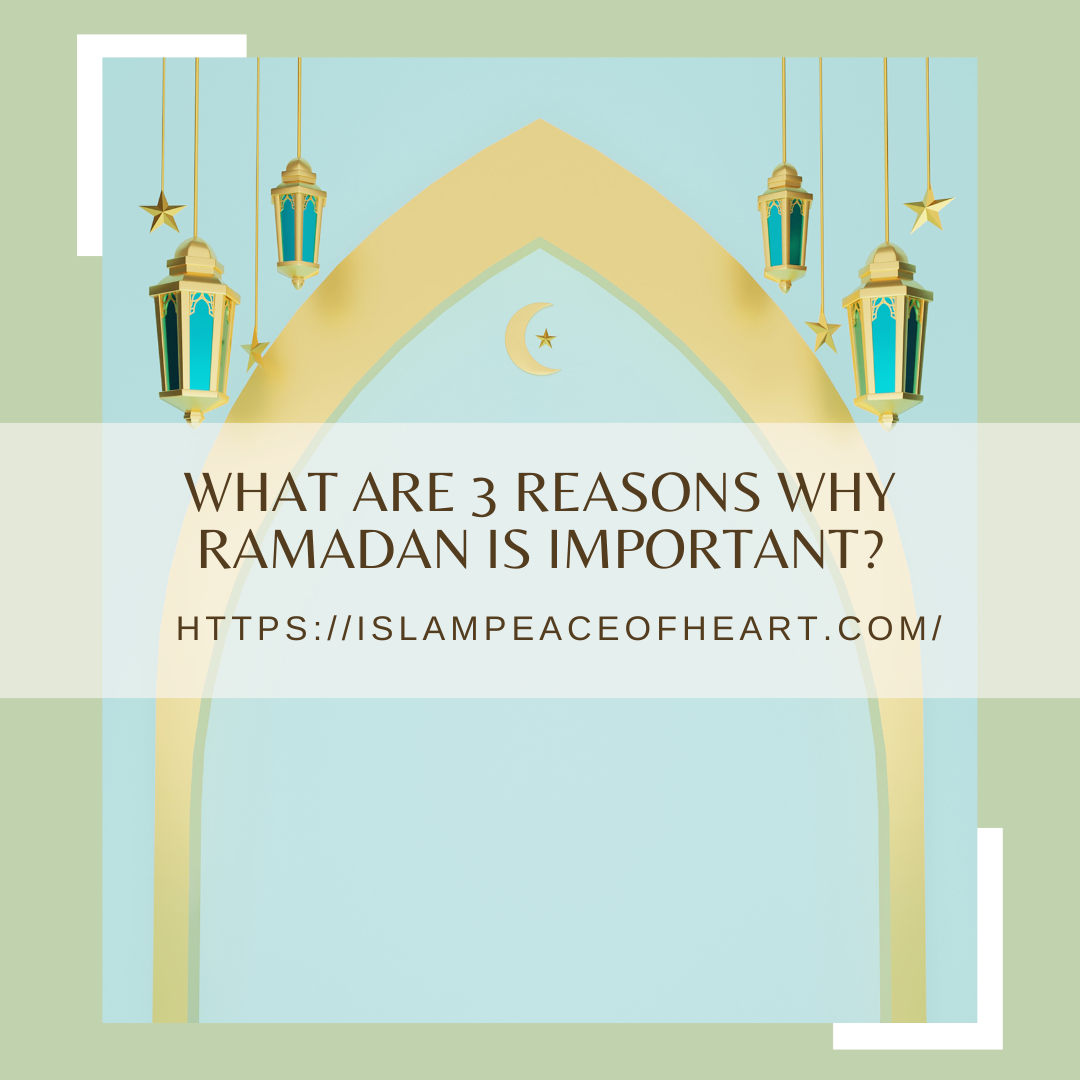What Are 3 Reasons Why Ramadan Is Important?
Ramadan, the 9th month of the Islamic lunar calendar, is a beacon of spirituality and virtue for Muslims globally. past its floor observances, this sacred month encapsulates a myriad of profound meanings and transformative studies that resonate deeply within the hearts of believers. let us embark on a journey to find the multifaceted significance of Ramadan by delving into three compelling motives that underscore its importance in the Islamic faith.
1. Religious Reflection:
Ramadan serves as a sanctified duration for Muslims to embark on an adventure of ascension and self-discovery. through fasting, believers interact in a shape of worship that transcends the physical realm, immersing themselves in a kingdom of heightened mindfulness and religious recognition. The abstention from meals, drink, and worldly pleasures at some stage in daylight fosters a profound experience of restraint, empowering people to overcome their baser desires and raise their souls towards the divine. furthermore, Ramadan offers a sacred space for introspection and contemplation, prompting believers to mirror their past moves, seek forgiveness for their shortcomings, and try for spiritual purification. Using embracing the pains of fasting and being attractive in acts of worship, Muslims cultivate a deep-seated reference to Allah, paving the manner for religious increase, enlightenment, and inner peace.

2. Network And Solidarity:
Ramadan serves as a unifying force that brings together Muslims from various backgrounds and walks of life, fostering an experience of cohesion, empathy, and team spirit in the Ummah (Muslim community). The collective observance of fasting, punctuated by way of the shared rituals of Suhoor and Iftar, creates a bond of kinship and camaraderie amongst believers, transcending societal obstacles and fostering a spirit of inclusivity and belonging. furthermore, Ramadan accentuates the significance of social duty and compassion via the exercise of Zakat and Sadaqah, encouraging Muslims to extend an assisting hand to the less fortunate and marginalized contributors of society. via engaging in acts of charity, volunteering, and community provider, Muslims exemplify the core values of Islam, selling compassion, empathy, and social justice inside the broader network. As a consequence, Ramadan serves as a time for Muslims to strengthen their bonds of brotherhood and sisterhood, reaffirm their commitment to collective welfare, and embody the spirit of compassion and generosity exemplified by way of the Prophet Muhammad (peace be upon him).
3. Renewal Of Faith And Gratitude:
Ramadan heralds a length of religious renewal and rejuvenation, supplying believers the possibility to deepen their religion, are trying to find divine steering, and explicit gratitude for the blessings bestowed upon them. The heightened spiritual environment, characterized by the aid of expanded devotion, recitation of the Quran, and nightly prayers such as Taraweeh, gives a sacred area for believers to reconnect with their author and nourish their souls. As Muslims engage in acts of worship, supplication, and remembrance, they express gratitude for the gift of religion, the possibility for religious growth, and the advantages of sustenance and security. furthermore, Ramadan serves as a time for believers to search for forgiveness for their sins, repent for their shortcomings, and strive for purification. Through the practice of fasting, prayer, and acts of charity, Muslims reaffirm their dedication to residing in a lifestyle of righteousness, humility, and devotion to Allah. thus, Ramadan serves as a transformative journey of religion, humility, and gratitude, guiding believers toward a route of enlightenment, moral excellence, and divine proximity.
Conclusion:
In conclusion, Ramadan embodies the essence of Islamic spirituality, imparting believers a sacred possibility for religious increase, network cohesion, and divine communion. Through the practice of fasting, prayer, and acts of charity, Muslims embrace the undying values of piety, compassion, and gratitude, reaffirming their dedication to residing in a lifestyle of virtue and righteousness. As believers embark on this sacred adventure, they are seeking Allah’s mercy, forgiveness, and advantages, while striving to encompass the teachings of Islam in their day-by-day lives. Ramadan stands as a testimony to the resilience, devotion, and religion of the Muslim Ummah, serving as a beacon of mild that illuminates the direction in the direction of spiritual enlightenment, communal harmony, and divine proximity.











